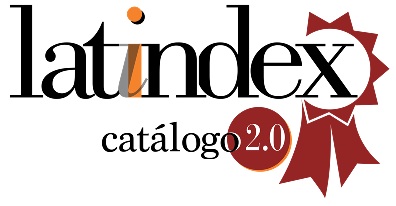The mediator and moderator role of controlled behavior and decision-power in the relationship between ecologically correct behavior and pro-evironmental behavior
DOI:
https://doi.org/10.5281/zenodo.8212159.svgAbstract
The objective of this research was to identify the mediating and moderating roles of controlled behavior and decision-making power in the relationship between ecologically correct behavior and pro-environmental behavior. The research was quantitative, descriptive, with primary data, and a questionnaire on a Likert scale from 1 to 5. The findings reveal that despite confirming a significant relationship between ecologically correct behavior and land administration, social environmentalism and environmental citizenship (pro environment), controlled behavior and decision-making power neither mediate nor moderate this relationship. The sample consisted of residents of the Brazilian Amazon region, which concentrates most of the discussions on environmental policy in Brazil and worldwide. The regional aspect of the sample reinforces the significance of the object of study of this research. Especially when one notices that, in this region, ecological awareness actually affects pro-environmental behavior.
Downloads
References
Afonso, T., Zanon, M. Â. G., Locatelli, R. L., & Afonso, B. P. D. (2016). Consciência ambiental, comportamento pró-ambiental e qualidade de gerenciamento de resíduos em serviços de saúde. Revista de Gestão Ambiental e Sustentabilidade, 5(3), 106-119. https://doi.org/10.5585/geas.v5i3.631
Ajzen, I. (1991). The theory of planned behavior. Organizational Behavior and Human Decision Processes, 50(2), 179–211. https://doi.org/10.1016/0749-5978(91)90020-T
Ajzen, I. (2002). Perceived behavioral control, self‐efficacy, locus of control, and the theory of planned behavior1. Journal of Applied Social Psychology, 32, 665–683. https://doi.org/10.1111/j.1559-1816.2002.tb00236.x
Akehurst, G., Afonso, C., & Martins Gonçalves, H. (2012). Re‐examining green purchase behaviour and the green consumer profile: new evidences. Management Decision, 50(5), 972-988. https://doi.org/10.1108/00251741211227726
Amérigo, M., García, J. A., & Cortes, P. L. (2017). Análisis de actitudes y conductas pro-ambientales: un estudio exploratorio con una muestra de estudiantes universitarios brasileños. Ambiente & Sociedade, 20(3), 1-20. https://doi.org/10.1590/1809-4422asoc300r1v2032017
Andrighetto, A. (2010). A construção da cidadania ambiental. Revista Direitos, 5(9), 75-86.
Arruda Filho, E. J. M., & Brito, E. P. Z. (2017). Green attributes converged within multifunctional technology products. Telematics and Informatics, 34(1), 79-90. https://doi.org/10.1016/j.tele.2016.04.008
Arundati, R., Sutiono, H. T., & Suryono, I. A. (2020). Effect of ecological awareness, personal norms and ecological attitude to conservation behavior. Proceedings on Engineering, 2(2), 187-196. https://doi.org/10.24874/PES02.02.009
Bassani, M. G., Milan, G. S., Lazzari, F., & De Toni, D. (2018). O efeito país de origem na avaliação de cervejas especiais e na intenção de compra dos consumidores: um estudo experimental. Revista Brasileira de Marketing, 17(2), 278-295. https://doi.org/10.5585/remark.v17i2.3727
Belinky, A. (2007). De ‘cidadão que consome’a ‘consumidor cidadão’. ANTAS JR. Ricardo M. Desafio do consumo. Editora Vozes, 75-87.
Bido, D. D. S., & Silva, D. D. (2019). SmartPLS 3: Specification, estimation, evaluation and reporting. Administração Ensino e Pesquisa, 20(2), 465–513. https://doi.org/10.13058/raep.2019.v20n2.1545
Braga Jr, S., Martínez, M. P., Correa, C. M., Moura-leite, R. C., & Silva, D. (2019). Greenwashing Effect, Attitudes, and Beliefs in Green Consumption. Revista de Administração, 54(2), 226-241. https://doi.org/10.1108/RAUSP-08-2018-0070v
Buogo, F. P., Zilli, J. C., & Vieira, A. C. P. (2016). Marketing verde como diferencial competitivo: Um estudo em uma indústria química do Sul de Santa Catarina. Revista Eletrônica Científica do CRAPR-RECC, 2(2), 60-73.
Campbell, C. (2006). Eu compro. Logo, sei que existo: as bases metafísicas do consumo moderno. In: L. Barbosa, & L. Campbell (Org.). Cultura, consumo e identidade. Editora FGV, 47-64.
Cao, H., & Chen, Z. (2019). The driving effect of internal and external environment on green innovation strategy-The moderating role of top management’s environmental awareness. Nankai Business Review International, 10(3), 342-361. https://doi.org/10.1108/NBRI-05-2018-0028
Carfagna, L. B., Dubois, E. A., Fitzmaurice, C., Ouimette, M. Y., Schor, J. B., Willis, M., & Laidley, T. (2014). An emerging eco-habitus: The reconfiguration of high cultural capital practices among ethical consumers. Journal of consumer culture, 14(2), 158-178. https://doi.org/10.1177/1469540514526227
Castells, M. (1999). O poder da identidade. São Paulo: Paz e Terra.
Chang, W., & Taylor, S. A. (2016). The effectiveness of customer participation in new product development: A meta-analysis. Journal of Marketing, 80(1), 47-64. https://doi.org/10.1509/jm.14.0057
Cheung, C., & Thadani, D. (2012). The impact of electronic word-of-mouth communication: A literature analysis and integrative model. Decision Support Systems, 54(1), 461-470. https://doi.org/10.1016/j.dss.2012.06.008
Cohen, J. (1988). Statistical Power Analysis for the Behavioral Sciences. Psychology Press.
Corraliza, J. A., & Collado, S. (2019). Ecological awareness and children’s environmental experience. Papeles Del Psicologo, 3, 190-196.
Côrtes, P. L., Días, A. G., Fernnades, M. E. D. S. T., Pamplonna, J., & VIEIRA, M. (2016). Environmental behavior: a comparative study between brazilian and portuguese students. Ambiente & Sociedade, 19, 113-134. https://doi.org/10.1590/1809-4422ASOC139099V1932016
Costa, T., Ramos, H., Vils, L., & Cunha, J. (2021). Are Altruists Environmentally Responsible and Materialists Environmentally Irresponsible? An Analysis on the Moderation of Social Desirability and Mediation of Environmental Awareness. Brazilian Business Review, 18(5), 585–604. https://doi.org/10.15728/bbr.2021.18.5.6
Engel, J., Blackwell, R., & Miniard, P. (2000). Comportamento do consumidor (8a ed.). Rio de Janeiro: LTC.
Espanhol, C. A., & Mainardes, E. W. (2017). Consumo Verde: o Comportamento do Consumidor após uma Tragédia Ambiental. Anais do Encontro da Associação Nacional de Pós-graduação e Pesquisa em Administração, São Paulo, SP, Brasil.
Faul, F., Erdfelder, E., Lang, A. G., & Buchner, A. (2007). G* Power 3: A flexible statistical power analysis program for the social, behavioral, and biomedical sciences. Behavior Research Methods, 39(2), 175-191. https://doi.org/10.3758/BF03193146
Fishbein, M., & Ajzen, I. (1975). Belief, attitude, intention and behavior: an introduction to theory and research. Reading, MA: Addison-Wesley.
França, I. K. M., de Moraes, C. S. B., de Oliveira Gavira, M., & da Cunha, C. F. (2019). Marketing social e ambiental e sua relação com as certificações e selos socioambientais. Brazilian Journal of Development, 5(8), 12724-12773. https://doi.org/10.34117/bjdv5n8-103
Gardner, R. G., Harris, T. B., Li, N., Kirkman, B. L., & Mathieu, J. E. (2017). Understanding “it depends” in organizational research: A theory-based taxonomy, review, and future research agenda concerning interactive and quadratic relationships. Organizational Research Methods, 20(4), 610-638. https://doi.org/10.1177/1094428117708856
Grubba, L. S., Pellenz, M., & De Bastiani, A. C. B. (2018). Cidadania ambiental: fundamentos éticos para uma sociedade sustentável. Revista Direito Ambiental e Sociedade, 7(3), 7-29. https://doi.org/10.18226/22370021.v7.n3.01
Hair Jr., J. F., Hult, G. T. M., Ringle, C. M., & Sarstedt, M. (2016). A Primer on Partial Least Squares Structural Equation Modeling (PLS-SEM). 2. ed. Thousand Oaks, CA: Sage Publications, Inc., [e-book], 334.
Hair Jr., J. F., Sarstedt, M., Ringle, C. M., & Mena, J. A. (2012). An assessment of the use of partial least squares structural equation modeling in marketing research. Journal of the Academy of Marketing Science, 40(3), 414–433. https://doi.org/10.1007/s11747-011-0261-6
Hair Jr., J.F., et al. (2014) Partial Least Squares Structural Equation Modeling (PLS-SEM): An Emerging Tool in Business Research. European Business Review, 26, 106-121. https://doi.org/10.1108/EBR-10-2013-0128
Hemerly A. L., & D’Angelo, M. J. (2017). Reflexões sobre o comportamento ecologicamente correto do consumidor capixaba. Race: Revista de Administração, Contabilidade e Economia, 16(2), 655-680. https://doi.org/10.18593/race.v16i2.13083
Kasilingam, R. (2020). Opportunities and Challenges in Green Marketing. Studies in Indian Place Names, 40(3), 3412-3415.
Klavdianos, N. D., & de Gunther, I. A. (2019). Apego ao lugar e ao comportamento pró-ambiental: o racionamento de água em questão. Saúde e Pesquisa, 12(3), 471-482. https://doi.org/10.17765/2176-9206.2019v12n3p471-482
Kumar, P., & Polonsky, M. J. (2017). An analysis of the green consumer domain within sustainability research: 1975 to 2014. Australasian Marketing Journal, 25(2), 85-96. https://doi.org/10.1016/j.ausmj.2017.04.009
Larson, L. R., Stedman, R. C., Cooper, C. B., & Decker, D. J. (2015). Understanding the multi-dimensional structure of pro-environmental behavior. Journal of Environmental Psychology, 43, 112-124. https://doi.org/10.1016/j.jenvp.2015.06.004
Leff, E., & Vieira, P. F. (2001). Epistemologia ambiental (Vol. 2). São Paulo: Cortez, 240.
Lindberg, E., Gärling, T., & Montgomery, H. (1989). Differential predictability of preferences and choices. Journal of Behavioral Decision Making, Chicago, 2(4), 205-219. https://doi.org/10.1002/bdm.3960020402
Lipovetsky, G. (2007). A felicidade paradoxal: ensaio sobre a sociedade de hiperconsumo. São Paulo: Companhia das Letras.
Lira, F. T. de. (2018). Fatores que influenciam a valorização de produtos ecológicos por consumidores ecologicamente conscientes. Revista de Gestão Social e Ambiental, 12(2), 90–107. https://doi.org/10.24857/rgsa.v12i2.1491
MacInnis, D. J., & Folkes, V. S. (2010). The disciplinary status of consumer behavior: A sociology of science perspective on key controversies. Journal of consumer research, 36(6), 899-914. https://doi.org/10.1086/644610
Maslow, A. H. (1954). Motivation and personality. New York: Harper & Brothers.
Mccormick, J. (1992). Rumo ao paraíso: a história do movimento ambientalista. Rio de Janeiro: Relume-Dumará, 213.
Morin, E. (2000). A cabeça bem-feita. Rio de Janeiro: Bertrand Brasil, 99.
Mowen, J. C. & Minor, M. S. (2003). Comportamento do consumidor. São Paulo: Prentice Hall.
Negri, S. T., & Heck, R. M. (2018). Aspectos A tomada de decisão na inclusão de alimentos orgânicos em unidades de alimentação e nutrição. SINERGIA-Revista do Instituto de Ciências Econômicas, Administrativas e Contábeis, 22(1), 65-76. https://doi.org/10.17648/sinergia-2236-7608-v22n1-7901
Novillo Díaz, L. A., Pérez Espinoza, M. J., & Carlos Muñoz, J. (2018). Marketing verde, ¿tendência o moda?. Revista Universidad y Sociedad, 10(2), 100-105.
Oliveira-Brochado, F., Oliveira-Brochado, A., & Caldeira, T. (2015). Os determinantes psicológicos do consumidor verde. Tourism & Management Studies, 11(2), 104-111. https://doi.org/10.18089/tms.2015.11213
Park, E., Lee, S., Lee, C. K., Kim, J. S., & Kim, N. J. (2018). An integrated model of travelers’ pro-environmental decision-making process: The role of the New Environmental Paradigm. Asia Pacific Journal of Tourism Research, 23(10), 935-948. https://doi.org/10.1080/10941665.2018.1513051
Porto, R. B. (2012). Comportamentos relatados de responsabilidade ambiental, social e reciclagem: relação com gênero, idade e estratificação econômica. Amazônia, Organizações e Sustentabilidade, 1(1), 95-107. https://doi.org/10.17800/2238-8893/aos.v1n1p95-107
Real Ferrer, G. (2012). Calidad de vida, médio ambiente, sostenibilidad y ciudadanía¿ construímos juntos el futuro?. Revista NEJ - Eletrônica, 17(3), 305-326.
Reis Sampaio, J. (2009). O Maslow desconhecido: uma revisão de seus principais trabalhos sobre motivação. Revista de administração-RAUSP, 44(1), 5-16.
Ribeiro, M. J., Carvalho, A. B., & Oliveira, A. C. (2004). O estudo do comportamento pró-ambiental em uma perspectiva behaviorista. Revista Ciências Humanas, Taubaté, 10(22), 177-182.
Ritter, A. M., Borchardt, M., Vaccaro, G. L., Pereira, G. M., & Almeida, F. (2015). Motivations for promoting the consumption of green products in an emerging country: exploring attitudes of Brazilian consumers. Journal of Cleaner Production, 106, 507-520. https://doi.org/10.1016/j.jclepro.2014.11.066
Semprebon, E., & Prado, P. H. M. (2016). A Influência do Poder no Relacionamento entre Consumidor e marca. Revista de Administração Contemporânea, 20(4), 389-411. https://doi.org/10.1590/1982-7849rac2016140112
Severo, E. A., Guimarães, J. C. F., Dellarmelin, M. L., & Ribeiro, R. P. (2019). The Influence of Social Networks on Environmental Awareness and the Social Responsibility of Generations. Brazilian Business Review, 16(5), 500–518. https://doi.org/10.15728/bbr.2019.16.5.5
Skinner, B. F. (1953). Science and human behavior. Macmillan: New York.
Straughan, R. D., & Roberts, J. A. (1999). Environmental segmentation alternatives: a look at green consumer behavior in the new millennium. Journal of Consumer Marketing, 16(6), 558-575. https://doi.org/10.1108/07363769910297506
Toynbee, A. (1978). A humanidade e a mãe-terra. Uma história narrativa do mundo. Rio de Janeiro: Zahar Editores.
Vaccari, L. C., Cohen, M., & da Rocha, A. M. C. (2017). Hiato entre atitude e comportamento no descarte e reciclagem de lixo: Uma abordagem intergeracional. Revista Pretexto, 18(2), 116-134. https://doi.org/10.21714/pretexto.v18i2.5366
Viegas, D., & de Sousa Teodósio, A. D. S. (2019). Mudança de Postura? A Conduta Cidadã no Uso de Sacola Plástica no Varejo. Administração Pública e Gestão Social, 1-19. https://doi.org/10.21118/apgs.v11i3.5484
Webster, F. E., & Lusch, R. F. (2013). Elevating marketing: marketing is dead! Long live marketing!. Journal of the Academy of Marketing Science, 41(4), 389-399. https://doi.org/10.1007/s11747-013-0331-z
Wu, S. I., & Chen, J. Y. (2014). A model of green consumption behavior constructed by the theory of planned behavior. International Journal of Marketing Studies, 6(5), 119. https://doi.org/10.5539/ijms.v6n5p119
Xu, L., Prybutok, V., & Blankson, C. (2019). An environmental awareness purchasing intention model. Industrial Management & Data Systems, 119(2), 367-381. https://doi.org/10.1108/IMDS-12-2017-0591










































